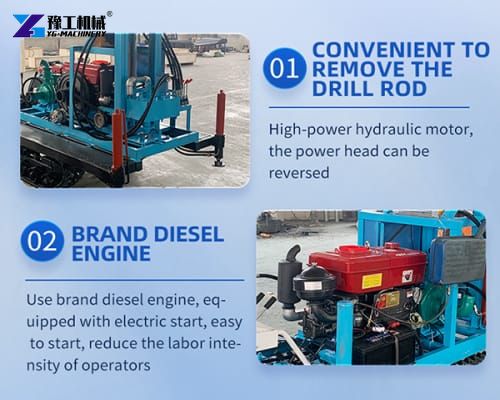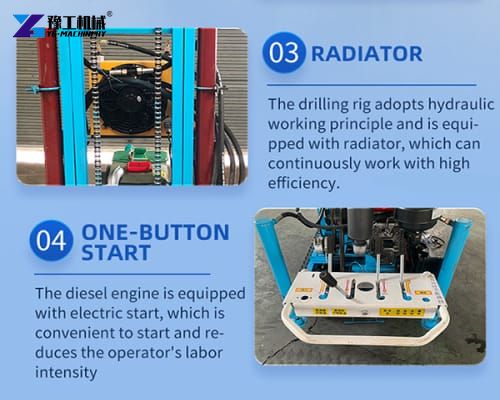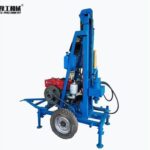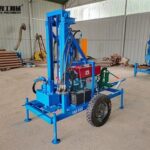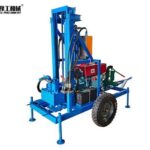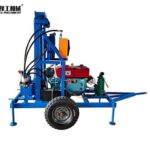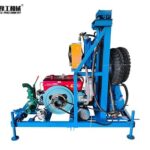Portable water well drilling machine is a lightweight, compact drilling rig designed to extract groundwater from beneath the Earth’s surface. Unlike traditional industrial drills, which are bulky and require heavy machinery for transportation, portable models are engineered for mobility, ease of use, and adaptability to diverse terrains. Their mobility and low costs make them ideal for reaching off-grid locations, including rural villages, mountainous regions, disaster-stricken areas, and agricultural fields.
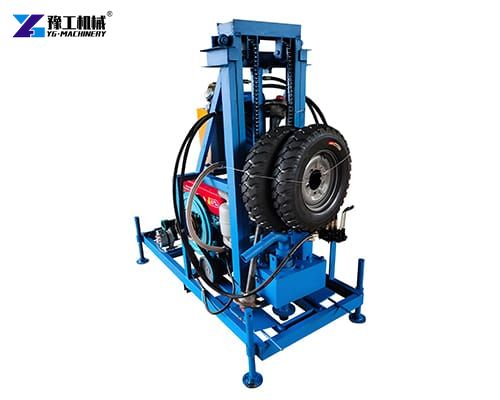
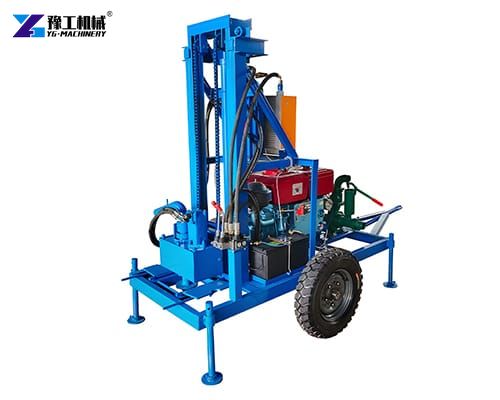
Parameter of the Portable Water Well Drilling Machine
| Model | YG-150 |
| Motor type | Diesel |
| Power | 22Hp |
| Max. Drilling depth | 150m |
| Drilling diameter | 75-325mm |
| Electric start | Include |
| Mud pump | Include |
| Lift weight | 800KG |
| Lifting weight | Max. 2.5m |
| Machine weight | 550KG |
Applications of Portable Water Well Drilling Machines
- Agriculture and Irrigation
Farmers rely on groundwater to sustain crops during dry seasons. Portable rigs allow them to install wells directly on their land ensuring consistent water access without dependence on external sources. - Disaster Relief Operations
Earthquakes floods and droughts often compromise existing water systems. Portable drilling machines enable rapid deployment of emergency wells restoring access to safe water within hours. - Geotechnical Surveys
Engineers and environmental consultants use portable rigs to collect soil samples assess groundwater levels and conduct site evaluations for construction projects.
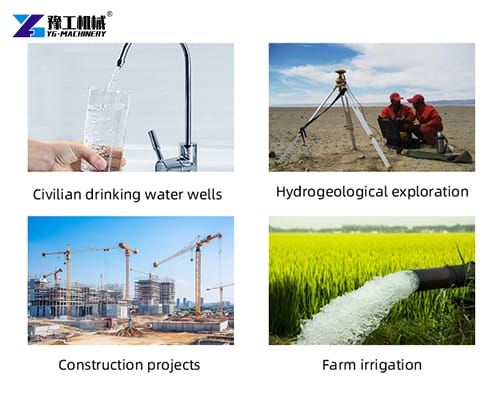
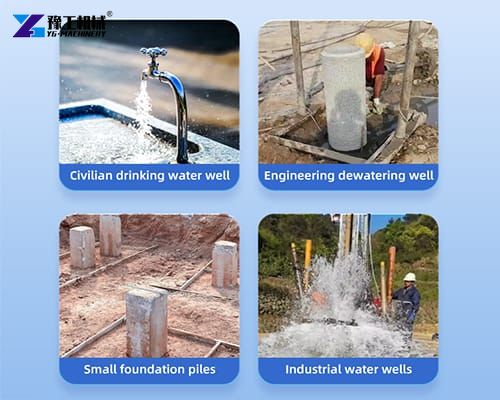
Key Features of Small Water Well Drilling Rig
- Compact and Lightweight Design
The defining characteristic of a portable water well drilling machine is its compact size. Many models can be transported using pickup trucks or trailers. This eliminates the need for heavy machinery or specialized vehicles, reducing operational costs and environmental impact. - User-Friendly Operation
Portable rigs prioritize ease of use, often requiring minimal training. Features like automated rod handling, ergonomic controls, and real-time monitoring systems enable small teams or even solo operators to manage drilling tasks efficiently. - Cost-Effectiveness
By minimizing fuel consumption, labor requirements, and equipment downtime, portable machines significantly lower the overall cost of well drilling. This affordability makes them accessible to NGOs, small-scale farmers, and communities with limited budgets.
